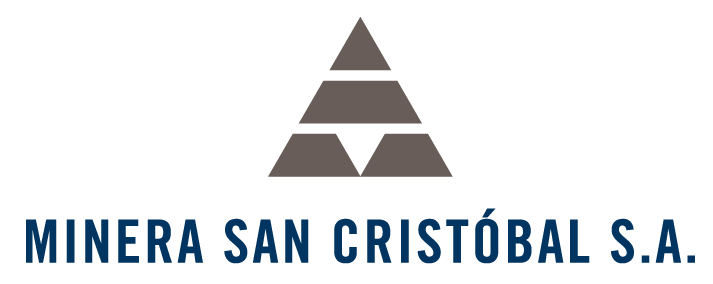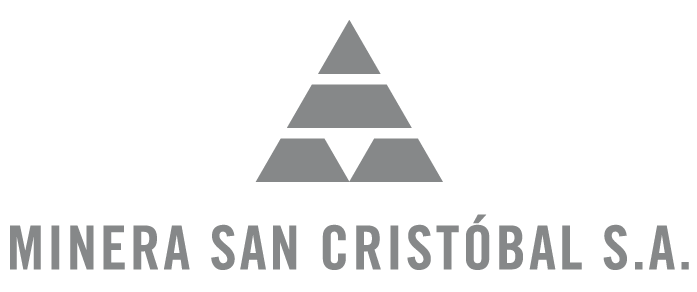Minera San Cristóbal brings its expertise in stakeholder’s management to the 24th World Mining Congress
Focused in Sustainable Development the company achieves great results in its operations in Bolivia
One of the main important themes that will be discussed during the 24th World Mining Congress is about how big companies are dealing with the use of the social license to prioritize stakeholders and creates the win – win overlap between its interests and stakeholders concerns. In this context, Minera San Cristóbal, a Subsidiary of Sumitomo Corporation, one of the largest business consortiums of Japan operating for more than 400 years, brings to discussion the engaging way that the company promotes its activities in the mining industry.
Based on its SLO – Social license to operate (see concept below), in the mining field, the company reinforces its Corporate Social Responsibility and has invested US$ 1.8 billion in a period of 10 years. The company represents 50% of non-ferrous minerals exports in Bolivia. In addition, it is the lowest cost producer in the world for a Zinc mine producer, according to a study by McKinsey consulting.
The investment has helped Minera San Cristóbal to be at the vanguard of technology to save energy and water, its development and implementation allows the company to be called as the mine of the future.
One of these examples are the use of a Technology that increases the efficiency of the mill by means of the maintenance of the optimization parameters at all times. This is translated to a reduction of power from 10 to 15% in similar mills. This technology is also applied to the ball mills, reducing even more the power consumption in a conservative way, in an additional 15%. Considering that it was established that the mills of the whole world have been made to use 3-5% of the world’s energy, the application of this technology in the industry could alleviate a significant part of the demand for energy provision of the world.
Therefore, the necessity to develop new technologies to reduce the water consumption in the mining industry is bigger than at any time before. In this way, Minera San Cristóbal has developed technology to reduce the demand for low quality water since many years before. The water reduction of water explotation per ton treated, from more than 40.000 m3 a day to less than 32.000 m3 a day. At the moment, 80% of the water used in San Cristóbal is recycled. As a result of this improvement in the performance, the demand of low quality water quality was reduced to 50%.
“Minera San Cristobal has an integrated management system for Social and Environmental Responsibility, its main goal is to help creating the proper conditions for the population settled in the communities that surround the mining project, developing undertakings that are self-sustaining and independent from the mining production, when seeking a better future for its inhabitants”, highlights Javier Diez de Medida, Corporate Affairs Manager at Minera San Cristóbal.
Mining is the second contributor to the Bolivia’s GDP after Oil and Gas. Today, the company is the largest mining operation in the history of Bolivia, building more than 200 km of roads and bridges, 65 km of Railway Branch and 172 Km of Power lines.
During the event, the executive will discuss the importance of how the company dialogues with different stakeholders and how they feel relating to the social License to operate with Corporate Social Responsibility.
About Minera San Cristobal SA
Located in the province of Nor Lipez Potosi department, the main mining company in Bolivia conducts its operations combining the use of technology with the permanent qualification of its workers, strict health, labor and industrial safety, preservation environment and sustainable development of communities. Seeking to contribute to the development of the region in which the department of Potosi and the country as a whole operates.
The operation is aimed at the production of mineral concentrates zinc-silver and lead-silver, is currently the largest in the history of Bolivia mining operation, the sixth largest zinc producer in the world and the fourth largest silver producer in the world.
Social License to Operate: The Social License has been defined as existing when a project has the ongoing approval within the local community and other stakeholders, ongoing approval or broad social acceptance and, most frequently, as ongoing acceptance.
At the level of an individual project the Social License is rooted in the beliefs, perceptions and opinions held by the local population and other stakeholders about the project. It is therefore granted by the community. It is also intangible, unless effort is made to measure these beliefs, opinions and perceptions. Finally, it is dynamic and non-permanent because beliefs, opinions and perceptions are subject to change as new information is acquired. Hence the Social License has to be earned and then maintained

